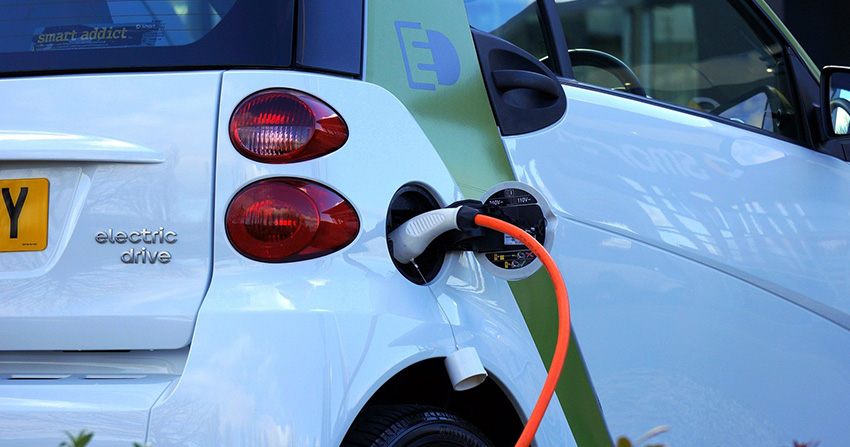The Catalonia Energy Research Institute (IREC) and the Eurecat technology centre have set up Battech, a flagship centre designed to cover the whole of Southern Europe’s battery ecosystem R&D&I. It will encompass research, development and innovation across the entire value chain of the next generation of electric cells and batteries for the electric mobility, renewable energy and capital goods markets.
To do this, Battech is to set up a joint research, development, testing and innovation unit specialising in batteries to enhance knowledge transfer to industry in this field anchored in the circular economy and the sustainability of the batteries of the future.
Alongside the investment in batteries already made by the two members of the joint unit in the last 10 years, Battech’s rollout over the next few years is also expected to result in an additional €5 million investment in facilities and the creation of 15 new highly skilled jobs.
Battech is not only about electric vehicle batteries as it additionally covers grid support using second life or new generation battery packs to offset usage peaks which renewables cannot meet due to a lack of wind or sun or a sudden spike in demand.
Energy transition and large-scale deployment of renewables in the grid are leading to ever-increasing variability in generation and demand. This makes it essential to have stationary batteries to maintain the flexibility and stability of the electricity system by means of a range of options including frequency regulation, voltage control, flattening usage peaks and system recovery capacity in the event of shutdowns or incidents.
Battech will target R&D&I projects and technology services for businesses and competitive domestic and international projects so as to generate and transfer knowledge to the battery industry.
The initiative is aimed at electric battery manufacturers and consumers, automotive and electric mobility businesses in general, energy and capital goods companies, regional, national and international public agencies, clusters, associations and platforms.
Battech will address fast-tracking research and innovation in electric cells and batteries. It will cover R&D&I across the entire value chain encompassing eco-design, new materials, testing and validation, assembly, industrialisation, second life and circularity for the next generation of electric cells and batteries.
Battech will provide industry with add-on skills by furnishing it with human resources, equipment and materials in battery research and technological development.
“For the Department of Business and Employment, the fact of being able to accompany this project is a great opportunity to verify, once again, the excellence of our research and innovation ecosystem, especially in an area that is fundamental for the future of the Catalan economy, such as the automotive industry”, says Albert Castellanos, the Catalan Government’s Secretary for Enterprise and Competitiveness.
“Battech’s purpose is to move towards innovation which has an industrial, economic and social impact in batteries and electric, lightweight and ecological mobility,” adds Xavier Torra, Eurecat’s chair.
“The joint unit is the core of the battery hub to fast-track new generation electric battery research and innovation,” points out Jordi Jacas, Battech’s director and coordinator of the European COBRA project. “The IREC and Eurecat and their respective research groups and technology units complement each other and this enhances their individual scientific and technical capabilities and potential.”
The IREC and Eurecat “are bringing together our capabilities, expertise and infrastructures in Battech which we will use to generate and transfer technology to develop the more energy-dense, efficient and sustainable battery of the future,” notes Joan Ramon Morante, Battech’s Scientific Director and IREC director.
“This initiative will generate and transfer knowledge to industry to make it more competitive in sectors which are undergoing a step change,” argues Xavier López, Chief Operating and Corporate Officer at Eurecat.
Battech’s goal “is to move towards innovation with an industrial, economic and social impact which helps to position Catalonia, Spain and Europe in batteries, electric mobility and energy transition,” says Agustí Chico, Battech’s Technology Director and director of Eurecat’s Special Projects and Multidisciplinary Laboratories Unit.
“The new mobility will be electric, connected, shared and autonomous,” adds Myriam García-Berro, Technology and Transfer Director at Eurecat. “Batteries are the hub of this paradigm shift towards electrification.”
Sustainable mobility
Battech is part of the sustainable mobility concept with special emphasis on studying new energy storage approaches to pave the way for the deployment of electric vehicles in the automotive, EV charging station manufacture and other industries.
The initiative is also aligned with the Paris Agreement which calls for a 40% cut in emissions by 2030 by developing more energy-dense, efficient and sustainable batteries for electric vehicles. The programme additionally supports the New Industrial Strategy for Europe, the Circular Economy Action Plan and the Regulatory Framework for Sustainable Batteries, which are some of the building blocks in the European Green Deal.
IREC and Eurecat join forces to fast-track mass market uptake of electric vehicles
The European COBRA and MARBEL projects led by the IREC and Eurecat are two examples of how they are joining forces to steadily grow the e-mobility ecosystem.
The MARBEL project is developing a new lighter and more sustainable battery concept with higher energy density and shorter charging times to fast-track mass market adoption of electric vehicles. It will design, develop and manufacture a new compact, modular, weight-optimised and high-performance battery pack designed from the outset for its second use and recyclability. It features longer life and greater energy efficiency in charging and energy use based on a robust and flexible battery management system (BMS) along with ultra-fast charging.
Meanwhile, COBRA is developing a new unique and cobalt-free battery system which merges several sought after features, including superior energy density, low cost, increased cycles and reduced critical materials to overcome many of the current shortcomings in electric vehicle batteries. The project’s innovation ensures easy adaptation to production lines and higher market uptake while also helping to enhance Europe’s position in the field.









